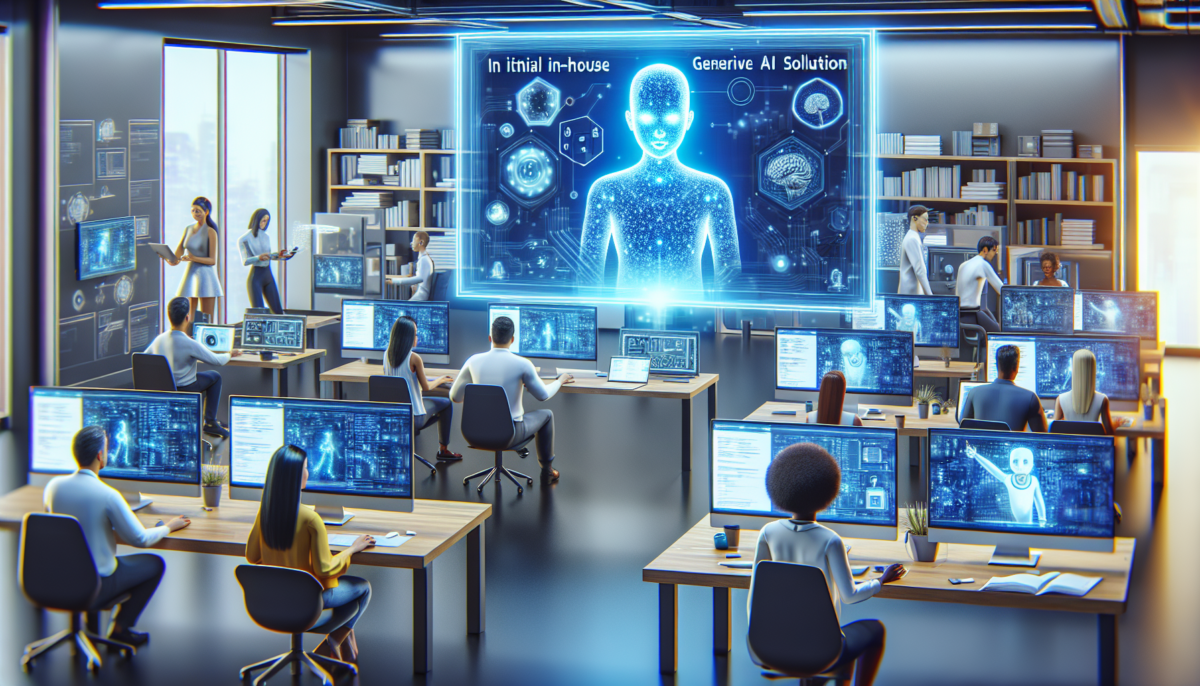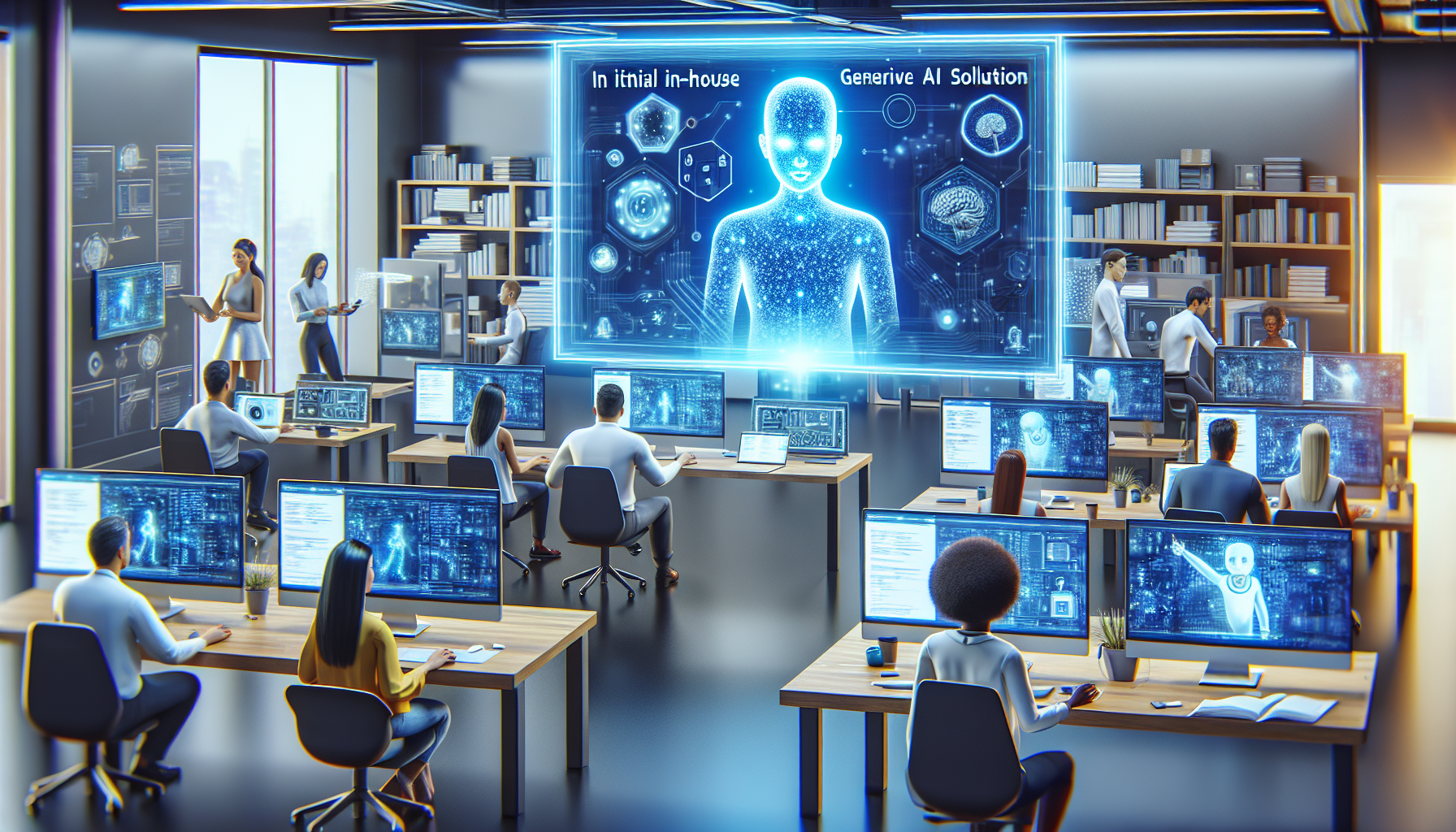Uniting Launches Its Initial In-House Generative AI Solution
We independently review everything we recommend. When you buy through our links, we may earn a commission which is paid directly to our Australia-based writers, editors, and support staff. Thank you for your support!

Concise Overview
- Uniting has introduced its inaugural in-house generative AI-driven digital assistant.
- This AI resource offers support and insights “at the point of care” for more than 11,000 staff members.
- Created in partnership with six aged care institutions and Microsoft’s AI development lab.
- The project aims to enhance processes, lessen manual tasks, and boost accessibility.
- Future planned AI features include capturing care notes, automated client assistance, and tailored care plans.
- Uniting is investigating AI-driven healthcare monitoring using wearables and sensors.
- Additional AI functionalities will be rolled out throughout the upcoming year.
Uniting Advances Aged Care With AI Digital Assistant

A Landmark in Digital Change
Uniting, a prominent aged care provider in NSW and ACT, has made a significant advancement in digital transformation with the introduction of its first in-house generative AI-powered digital assistant. This tool is tailored to support staff by delivering immediate information and assistance “at the point of care,” thereby enhancing efficiency and streamlining processes.
Joint Development and Microsoft’s Involvement
The AI tool’s creation was a collaborative initiative involving six aged care organisations: Uniting NSW.ACT, Uniting Agewell, RSL Life, Catholic Healthcare, Baptist Care, and HammondCare. Microsoft’s AI incubation lab for Aged Care and Aware played an essential role in both technical development and financial contributions.
“The foundational solution is backed by Microsoft as part of the Tech for Social Impact division aimed at non-profit aged care entities,” stated Ramesh Raghavan, Uniting’s lead for digital innovation and experience. Uniting is also allocating further resources to ensure smooth integration within its current digital framework.
Tackling Operational Issues Through AI
As technology rapidly evolves, Uniting recognised the necessity to adopt innovative measures to address operational challenges. Choosing not to depend on an array of mobile applications and extensive systems, which could lead to a disjointed digital experience, the organisation pursued an AI-centric strategy.
The digital assistant was crafted through extensive co-design workshops with staff to guarantee it aligns with their requirements. Key advantages include:
- Diminishing manual workload through automation.
- Offering voice-to-text functionality and multi-language assistance.
- Improving access to essential information such as client files, policies, and care protocols.
“We have just launched the first feature of this solution, with several more releases scheduled for this year,” Raghavan noted.
Consistent With Uniting’s Digital Vision
This AI initiative is in alignment with Uniting’s wider digital transformation vision, particularly its objective to ‘empower our personnel.’ The strategy emphasizes the reliability and user-friendliness of technology while ensuring employees have secure access to vital data whenever and wherever it’s needed.
Upcoming AI Uses in Aged Care
Uniting is actively investigating further AI-backed solutions to enhance its aged care offerings. Some potential applications include:
AI-Enabled Care Note Capture and Retrieval
AI capabilities can facilitate the automatic documentation and retrieval of care notes, lessening the administrative load on staff and ensuring precise record-keeping.
Automated Client Support
By integrating AI-powered assistants with Cisco Webex, Uniting intends to automate client inquiries, manage appointment scheduling, and handle visit cancellations, thereby boosting efficiency and customer satisfaction.
Customised Care Plans
AI can assess individual health records to develop care plans that address the unique needs of each patient, fostering improved health results.
Health Monitoring Using Wearable Tech
Uniting is considering harnessing data from wearable devices and sensors to track vital signs, identify early health concerns, and deliver predictive insights for proactive care.
AI for Risk Evaluation and Diagnostics
A further promising application is the use of AI for assessing risk regarding pressure injuries, including diagnostics and treatment suggestions. AI can also provide a chronological care history, granting staff access to care plans in various formats, such as PDFs and free-text notes.
Conclusion
The introduction of a generative AI-powered digital assistant by Uniting represents a remarkable breakthrough in digital innovation within aged care. By enhancing access to vital information and automating manual activities, the AI tool aims to boost operational efficiency and staff effectiveness. Future advancements in care note management, automated support, tailored care plans, and health monitoring are expected to further transform aged care services. With ongoing updates anticipated, Uniting is positioned to pioneer the integration of AI in the aged care sector.
Questions & Answers
Q: What is the goal of Uniting’s AI-powered digital assistant?
A:
The AI assistant aims to deliver real-time support and insights to Uniting’s aged care personnel, streamlining manual tasks, enhancing efficiency, and improving access to care-related information.
Q: In what ways does the AI assistant boost operational efficiency?
A:
By automating processes like voice-to-text transcription, providing multi-language support, and ensuring easy access to client records and policies, the AI assistant allows staff to concentrate more on patient care rather than administrative duties.
Q: Which organisations were involved in creating the AI tool?
A:
The solution was collaboratively designed by Uniting NSW.ACT, Uniting Agewell, RSL Life, Catholic Healthcare, Baptist Care, and HammondCare, with technical and financial backing from Microsoft’s AI incubation lab.
Q: What role does Microsoft play in this project?
A:
Microsoft’s Tech for Social Impact division financially supports the foundational solution and offers technical support through its AI incubation lab for Aged Care and Aware.
Q: What future capabilities is Uniting planning to add with AI?
A:
Uniting is looking into AI-powered care note retrieval, automated client support, personalised care plans, health monitoring through wearables, and AI-driven risk assessment for pressure injuries.
Q: How will the AI assistant fit with existing Uniting systems?
A:
Uniting is putting resources into further integrations to guarantee compatibility with its current digital systems, facilitating effortless access to the tool for staff within their usual workflow.
Q: When can we expect the rollout of new AI features?
A:
Uniting has indicated that new AI functionalities will be introduced progressively over the year, enhancing both functionality and expanding the capabilities of the tool.
Q: How might AI reshape the aged care industry in Australia?
A:
AI has the potential to significantly transform aged care by enhancing efficiency, customizing patient care, reducing administrative burdens, and enabling proactive health monitoring through predictive analytics.
This article is crafted for SEO with headings, subheadings, bullet points, and organized content. It features a “Concise Overview” section for quick insights, an in-depth discussion of the AI tool, its advantages, and future uses, followed by a Q&A clarifying potential reader questions. The content is tailored for the Australian audience with references to pertinent organisations and key industry trends.
